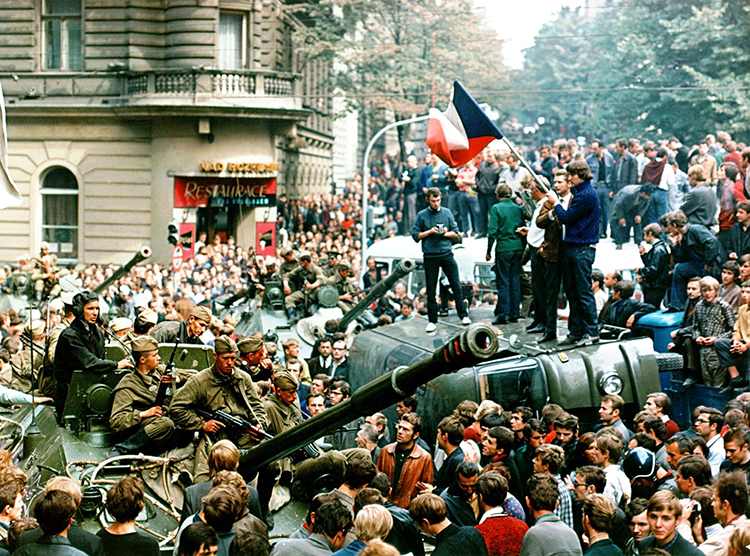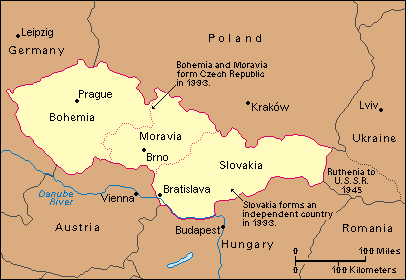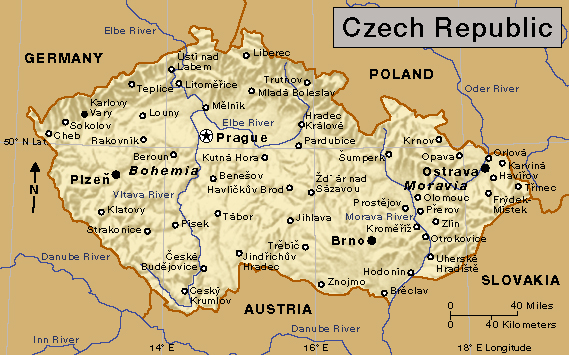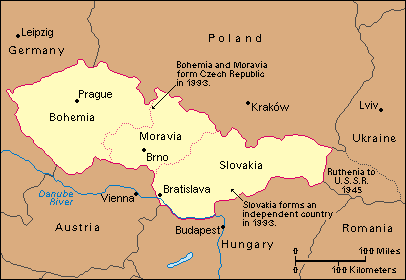The Prague Spring
Tuesday, August 21st, 2018August 21, 2018
On Aug. 21, 1968, 50 years ago today, troops from the Soviet Union and its satellite Communist states invaded Czechoslovakia. (The Soviet Union comprised modern-day Russia and other republics; Czechoslovakia is now the Czech Republic and Slovakia.) For many years, Czechoslovakia was one of the Soviet Union’s most loyal Communist allies. In early 1968, however, the Czechoslovak government in Prague, the capital, introduced liberal reforms and worked to grant its citizens greater freedom. The liberal movement came to be known as the Prague Spring. For months, it appeared that Czechoslovakia might shrug off Soviet dominance and embrace the non-Communist West. The Soviet Union refused to allow this, however, and crushed what it considered a rebellious uprising. The Prague Spring was a key event of the Cold War, the intense rivalry that developed after World War II (1939-1945) between groups of Communist and non-Communist nations.

Citizens of Prague gather in peaceful protest around Russian tanks and soldiers during the Soviet invasion of Czechoslovakia on Aug. 21, 1968. Credit: © Libor Hajsky, CTK/AP Photo
Czechoslavakia, which was created at the end of World War I (1914-1918), came under Soviet control at the end of World War II in 1945. A Communist government took power in Prague in 1946, and it repressed all political opposition. In 1955, Czechoslavakia joined the Warsaw Pact, a treaty that held most Eastern European nations in a military command under tight Soviet control.

Click to view larger image
At the end of World War II in 1945, the Soviet Union kept control of the territory it gained from German rule, including Bohemia, Moravia, and Slovakia, the main territories of Czechoslovakia. Credit: WORLD BOOK map
During the 1960′s, the Czechoslovak economy was suffering. In addition, many Slovaks wanted greater recognition of Slovak rights. In 1968, Alexander Dubček became head of the Communist Party. Under Dubček, the government introduced the Prague Spring liberal reforms, a movement also called “socialism with a human face.” The press was granted greater freedom, and citizens were given a limited role in politics.
Leaders of the Soviet Union and other European Communist nations feared that Dubček’s programs would weaken Communist control in Czechoslovakia. They also feared that people in other Communist countries would demand similar reforms. As a result, about 250,000 troops and 2,000 tanks from the Soviet Union (including small numbers of Bulgarian, East German, Hungarian, and Polish troops) invaded Czechoslovakia on the night of Aug. 20-21, 1968. To prevent a slaughter, the Czechoslovak government asked its people not to resist, but many stood up to the Soviets anyway. About 100 people were killed, hundreds more were wounded, and the Prague Spring came to a quick end.
Dubček was removed as head of the Czechoslovak Communist Party and most of his reforms were reversed. Political opposition was effectively silenced until the late 1980′s when democratic reforms began taking place in the Soviet Union. In November 1989, large numbers of Czechs and Slovaks gathered in the streets of Prague to call for an end to Communist rule. Less than a month after the protests began, the Communist government resigned. Non-Communist leaders gained control of the government. The end of Communist rule in Czechoslovakia occurred so smoothly and peacefully that it became known as the Velvet Revolution. On Jan. 1, 1993, the Czech Republic and Slovakia were created to replace Czechoslovakia.




